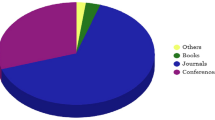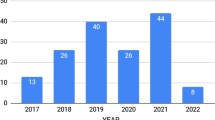Abstract
The recommendation system recommends information and services to users by collecting and analyzing user behaviors. Many current studies have shown that recommendation algorithms that integrate social network information can effectively improve recommendation performance. Most of the existing social recommendation algorithms assume that the trust relationship between users is singular and homogeneous. These social recommendation algorithms generally ignore two problems: (i) in a network of trust relationships, each user has various friends and trust relationships, which have an impact on user ratings. (ii) each user with different social status, which influences also affects the ratings between users. Propose a social network recommendation algorithm (Social Strength Trust Recommendation Algorithm, SSTRA) in this paper. Firstly, the algorithm uses the different out-degree and in-degree relationships among different users to calculate the different trust strengths of each user in social networks; secondly, it calculates the social influence of different users through the social ranking algorithm (SocailRank); thirdly, it will be based on the trust strength relationship of social networks and the social influence of users are integrated into the probability matrix factorization model. This method can achieve the purpose of optimizing recommendation results. The experimental results compared on the CiaoDVD dataset show that: Compared with the SocialMF, SoRec, RSTE, PMF, and Trust algorithms, the average MAE has increased by 1.33%, 1.69%, 4.88%, 11.17% and 220.41%, and the average RMSE has increased by 1.47%, 1.9%, 5.06%, 7.27%, 217.55%. The experimental results compared on the Ciao dataset show that: Compared with the SocialMF, SoRec, RSTE, PMF, and Trust algorithms, the average MAE is increased by 4.83%, 5.05%, 1.96%, 5.58%, 143.39%, and the average RMSE is increased by 1.76%, 2.17%, 2.1%, 2.38%, 151.1%. Experimental results show that the algorithm has obvious advantages in recommendation accuracy.


Similar content being viewed by others
References
Amato F, Moscato V, Picariello A, Piccialli F (2019) SOS: a multimedia recommender system for online social networks. Futur Gener Comput Syst 93:914–923. https://doi.org/10.1016/j.future.2017.04.028
Avesani P, Massa P, Tiella R (2005) A trust-enhanced recommender system application: Moleskiing. Proceedings of the 2005 ACM symposium on Applied computing. Association for Computing Machinery, Santa Fe, pp 1589–1593
Davoudi A, Chatterjee M (2018) Social trust model for rating prediction in recommender systems: effects of similarity, centrality, and social ties. Online Social Networks and Media 7:1–11. https://doi.org/10.1016/j.osnem.2018.05.001
Eirinaki M, Gao J, Varlamis I, Tserpes K (2018) Recommender systems for large-scale social networks: a review of challenges and solutions. Futur Gener Comput Syst 78:413–418. https://doi.org/10.1016/j.future.2017.09.015
Esmaeili L, Mardani S, Golpayegani SAH, Madar ZZ (2020) A novel tourism recommender system in the context of social commerce. Expert Syst Appl 149:113301. https://doi.org/10.1016/j.eswa.2020.113301
Guo G, Zhang J, Zhu F, Wang X (2017) Factored similarity models with social trust for top-N item recommendation. Knowl-Based Syst 122:17–25. https://doi.org/10.1016/j.knosys.2017.01.027
Gupta S, Kant V (2020) Credibility score based multi-criteria recommender system. Knowl-Based Syst 196:105756. https://doi.org/10.1016/j.knosys.2020.105756
Hongyi G, Gongshen L, Bo S, Kui M (2016) Collaborative filtering recommendation algorithm combining community structure and interest clusters. J Comput Res Dev 53(08):1664–1672. https://doi.org/10.7544/issn1000-1239.2016.20160175
Jamali M, Ester M (2010) A matrix factorization technique with trust propagation for recommendation in social networks. Proceedings of the fourth ACM conference on Recommender systems. Association for Computing Machinery, Barcelona, pp 135–142
Koren Y, Bell R, Volinsky C (2009) Matrix factorization techniques for recommender systems. Computer. 42(8):30–37. https://doi.org/10.1109/mc.2009.263
Li J, Chen C, Chen H, Tong C (2017) Towards context-aware social recommendation via individual trust. Knowl-Based Syst 127:58–66. https://doi.org/10.1016/j.knosys.2017.02.032
Liu Q, Xiang B, Yuan NJ, Chen E, Xiong H, Zheng Y et al (2017) An influence propagation view of PageRank. ACM Trans Knowl Discov Data 11(3):Article 30. https://doi.org/10.1145/3046941
Ma H, Yang H, Lyu MR, King I (2008) SoRec: social recommendation using probabilistic matrix factorization. Proceedings of the 17th ACM conference on Information and knowledge management. Association for Computing Machinery, Napa Valley, pp 931–940
Ma H, Zhou D, Liu C, Lyu MR, King I (2011) Recommender systems with social regularization. Proceedings of the fourth ACM international conference on Web search and data mining. Association for Computing Machinery, Hong Kong, pp 287–296
Ma H, King I, Lyu MR (2011) Learning to recommend with explicit and implicit social relations. ACM Trans Intell Syst Technol 2(3):Article 29. https://doi.org/10.1145/1961189.1961201
Pal B, Jenamani M (2018) Kernelized probabilistic matrix factorization for collaborative filtering: exploiting projected user and item graph. Proceedings of the 12th ACM Conference on Recommender Systems. Association for Computing Machinery, Vancouver, pp 437–440
Pradhan T, Pal S (2020) A hybrid personalized scholarly venue recommender system integrating social network analysis and contextual similarity. Future Gener Comput Syst 110:1139–1166. https://doi.org/10.1016/j.future.2019.11.017
Ting C, Qing Z, MengXi Z, Shan W (2017) Trust-based recommendation algorithm in social network. J Softw 28(03):721–731. https://doi.org/10.13328/j.cnki.jos.005159
Wu H, Yue K, Pei Y, Li B, Zhao Y, Dong F (2016) Collaborative topic regression with social trust ensemble for recommendation in social media systems. Knowl-Based Syst 97:111–122. https://doi.org/10.1016/j.knosys.2016.01.011
Wu B, Lou ZZ, Ye YD (2018) Co-Regularized matrix factorization recommendation algorithm. J Softw 29(9):2681–2696. https://doi.org/10.13328/j.cnki.jos.005274
Wu B, Lou Z, Ye Y (2018) Co-regularized matrix factorization recommendation algorithm. J Softw 29(09):2681–2696. https://doi.org/10.13328/j.cnki.jos.005274
Xiang R, Neville J, Rogati M (2010) Modeling relationship strength in online social networks. Proceedings of the 19th international conference on World wide web. Association for Computing Machinery, Raleigh, pp 981–990
Yang X, Steck H, Liu Y (2012) Circle-based recommendation in online social networks. Proceedings of the 18th ACM SIGKDD international conference on Knowledge discovery and data mining. Association for Computing Machinery, Beijing, pp 1267–1275
Yang X, Guo Y, Liu Y, Steck H (2014) A survey of collaborative filtering based social recommender systems. Comput Commun 41:1–10. https://doi.org/10.1016/j.comcom.2013.06.009
YiTeng P, FaZhi H, HaiPing Y (2018) Social recommendation algorithm using implicit similarity in trust. Chin J Comput 41(01):65–81. https://doi.org/10.11897/SP.J.1016.2018.00065
Zhang J, Tan L, Tao X, Pham T, Chen B (2020) Relational intelligence recognition in online social networks — a survey. Comput Sci Rev 35:100221. https://doi.org/10.1016/j.cosrev.2019.100221
Zhang X-f, Chen X-l, Seng D-w (2020) Top-N recommendation algorithm combining user trust and influence. J ZheJiang Univ Eng Sci (2):311–319. https://doi.org/10.3785/j.issn.1008-973X.2020.02.012
Funding
This research was funded by Jiangsu University of Technology (Grant No. KYY19042).
Author information
Authors and Affiliations
Corresponding author
Ethics declarations
Conflict of interest
The authors declare no conflict of interest.
Additional information
Publisher’s note
Springer Nature remains neutral with regard to jurisdictional claims in published maps and institutional affiliations.
Rights and permissions
About this article
Cite this article
Li, Z., XiaoBo, C. Recommendation algorithm of influence and trust relationship. Multimed Tools Appl 81, 15635–15652 (2022). https://doi.org/10.1007/s11042-022-12231-5
Received:
Revised:
Accepted:
Published:
Issue Date:
DOI: https://doi.org/10.1007/s11042-022-12231-5




